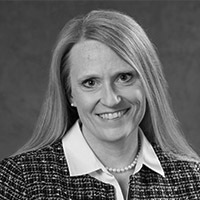Question
What is adaptation/maintenance level of care for patients with dementia?
Answer
When we look at adaptation or maintenance, the person at adaptation or maintenance has a poor potential for learning. We are going to be looking at functional maintenance programs there. We are going to be looking at cueing strategies, environmental adaptations, and those sorts of things. Where we fall short is that we attempt to apply restoration principles for those residents it is not appropriate for. These are typically the patients who have contractures, wounds, are late stage dementia, all of the sorts of things, and again they are not going to have a strong learning potential.
They are not going to be able to get better. I guess that is the best way to say it. What we need to do is adapt the environment, figure out the cueing strategies, figure out what works for them and train caregivers to carry that over. We are not going to see a long length of stay for them. We are not going to see them on therapy for a really long time. They may or may not meet large goals. The goals might be staff-centered. The goals might be caregiver-centered and they may be splint goals. We are not going to have them go from mod-assist to min-assist. We might just be able to see them put their right upper extremity in their shirt 50% of the time with two verbal cues. They are going to be on the lower level side.
